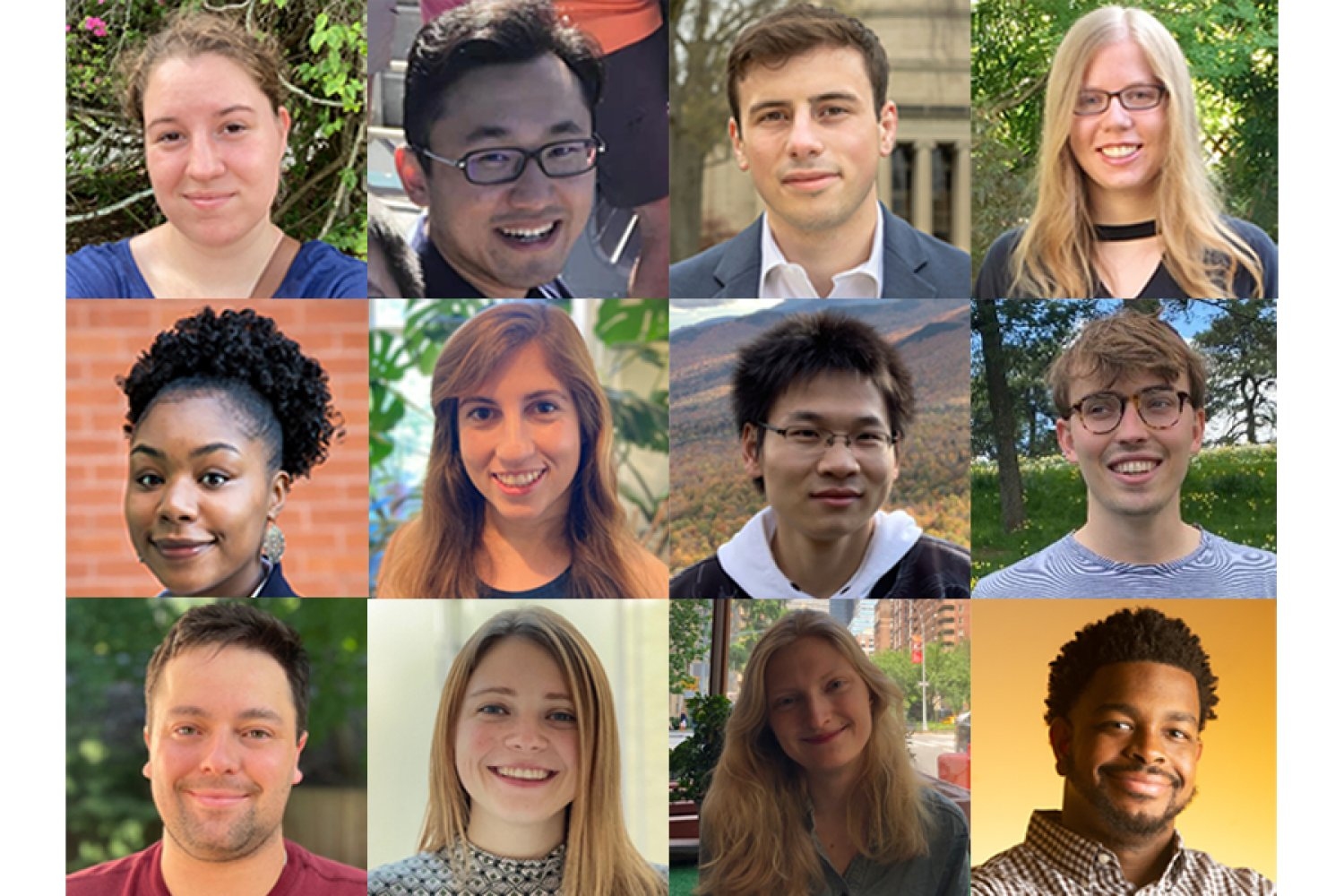

The MIT-Takeda Program, a collaboration between MIT’s College of Engineering and Takeda Pharmaceuticals, fuels the development and application of AI capabilities for the benefit of human health and drug development. Part of the Abdul Latif Jameel Clinic for Machine Learning in Health, the program brings together different disciplines, combining theory and practice, combining algorithm and hardware innovations, and creating multidimensional collaboration between academia and industry.
With the goal of building a community dedicated to next generation AI and system-level breakthroughs, the MIT-Takeda Program also creates educational opportunities. Each year, Takeda funds scholarships to support graduate students who are pursuing research related to health and artificial intelligence. This year’s Takeda Fellows, described below, work on projects ranging from electronic health record and automated control systems to pandemic preparedness and traumatic brain injury.
Camille C. Farruggio
Farruggio is a PhD candidate in the Department of Materials Science and Engineering, where his research advances artificial intelligence and machine learning, including regression modeling, to help realize the promise of applications of cells as medicine. As an Takeda Fellow, she seeks to develop a comprehensive understanding of the cultured conditions and cell traits that modulate and predict cell efficacy as therapeutic therapies and solve current technological bottlenecks in the production of cell therapies.
Wenhao Zhao
Gao is a PhD student in the Department of Chemical Engineering who aims to accelerate biological and chemical discovery processes. His work has a particular focus on artificial intelligence for the health sciences and cutting-edge applications of machine learning for molecule discovery and drug development. Gao’s research, supported by a Takeda Fellowship, seeks to create a more efficient process, using AI algorithms to advance de novo design and organic synthesis methods to accelerate drug development.
Samuel Goldman
Goldman is a PhD candidate in the Computational and Systems Biology program whose research interests lie at the intersection of biology, analytical chemistry, and machine learning. Specifically, Goldman uses mass spectrometry data and generative deep learning to elucidate the structures of unknown molecules in biological samples, with important implications for drug discovery. As an Emphasis Fellow, he will build new computational tools to characterize and quantify unknown small molecule metabolites in a cellular mixture.
Sarah Jorev
Gurev is a PhD candidate in the Department of Electrical Engineering and Computer Science. Her research seeks to address the challenges of pandemic preparedness and prediction of viral immune evasion. As an Emphasis Fellow, Gorev will advance her work at the intersection of computational methods and experimental screening to develop new models of antibody escape.
Holsey threw me
Hulsey is a PhD candidate in the Department of Electrical Engineering and Computer Science, where his work bridges the fields of AI and health to create cutting-edge AI-based assessments of cognitive impairment in speech and language disorders. With support from the Takeda Fellowship, Haulcy will develop new speech processing tools focused on measuring speech biomarkers relevant to health, specifically examining the speech of people with frontotemporal dementia and primary progressive aphasia.
Velina Kozareva
Kozareva is a PhD candidate in the Computational and Systems Biology program whose research focus is on developing machine learning methods for integrating multi-omic data in heterogeneous diseases. As a Takeda Fellow, Kozareva aims to develop computational methods for identifying heterogeneous disease subtypes and the causal mechanisms that drive each subtype simultaneously, with an initial focus on amyotrophic lateral sclerosis.
Yang Liu
Liu is a PhD candidate in the Department of Electrical Engineering and Computer Science and his current work focuses on AI for health records and imaging/computational imaging, which lies at the confluence of computer science, optics, biomedicine/neuroscience, hardware design, and software design. . Liu’s Takeda Fellowship will support his current research, a collaborative project aimed at addressing the challenges associated with healthcare delivery and maintaining healthcare records in resource-constrained settings.
Luke Murray
Murray is a PhD candidate in the Department of Electrical Engineering and Computer Science and focuses his work on electronic health record (EHR) systems, which are revolutionizing healthcare and have huge potential for clinical diagnostics, operations and research, but also have serious problems. shortcomings. Through the Takeda Fellowship, Murray will grapple with the limitations of upstream EHRs: disparate interfaces that fragment clinical workflows into time-consuming, error-prone processes that require clinicians to spend more time interacting with EHRs than with patients.
Mark Olchani
Olchanyi is a PhD candidate in the Harvard-MIT Program in Health Sciences and Technology whose research seeks to advance our knowledge of traumatic brain injuries (TBIs). Olchanyi’s research, supported by the Takeda Fellowship, will apply deep learning to study in vivo imaging-based brain biomarkers, with a specific focus on subcortical white matter lesions in acute traumatic brain injury leading to disturbances of consciousness.
Christa Pollen
Pullen is a PhD candidate in the Department of Biological Engineering whose research lies at the intersection of vaccine immunology and machine learning. With support from the Takeda Fellowship, Pullen will develop and validate the application of cross-species modeling in the context of vaccine immunogenicity to enable prediction of human efficacy from preclinical data.
Georgia Thomas
Thomas is a PhD candidate in the Harvard-MIT program in Health Sciences and Technology, whose research explores the fundamental physics of optical imaging, with the goal of expanding its potential to address important medical challenges. As a Takeda Fellow, Thomas will advance her work creating innovative tools to better understand and treat coronary atherosclerosis, a disease that affects more than 18 million people in the United States alone.
a. Michael West Jr.
West is a PhD student in the Department of Mechanical Engineering whose research integrates robotics, artificial intelligence, and healthcare to improve robotic rehabilitation and enhance human-robot interactions. Specifically, his work explores human kinematic control of movement, with the goal of enhancing robot control and performance. As a Takeda Fellow, West will study the functions of the human hand and its ability to manipulate objects and tools.
(tagsT toTranslate) MIT-Takeda Program
